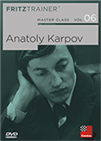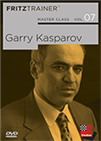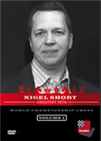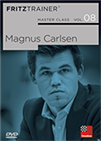Election teams file official tickets with FIDE
Every four years there are elections at the World Chess Federation, held as part of the FIDE Congress, during the Chess Olympiad. In recent years, these elections tended to be accompanied by a lot of noise, but in the end, there was always the same winner — Kirsan Ilyumzhinov. Since 1995, Ilyumzhinov acted as FIDE president — with 23 years in office, he has even surpassed the Swede Folke Rogard, the second president in FIDE history (1949-1970), in this regard. Prior to Ilyumzhinov only the Dutchman Alexander Rueb, who led the fortunes of the World Chess Federation from its founding in 1924 until 1949, served in the post for a longer tenure.
The FIDE Presidents
1924–1949: Alexander Rueb
1949–1970: Folke Rogard
1970–1978: Max Euwe
1978–1982: Fridrik Olafsson
1982–1995: Florencio Campomanes
1995–2018: Kirsan Ilyumzhinov |
Tough times after Campomanes
Ilyumzhinov took on a difficult job at the time. His predecessor, Florencio Campomanes, was jointly responsible for splitting the world chess championship. In his homeland, the Philippines, Campomanes was under suspicion of corruption and later convicted of misappropriation of funds. Under his tenure, FIDE was almost broke. In 1995, Campomanes was no longer considered viable as a candidate and was relegated to the post of honorary president, while the role passed to Ilyumzhinov as the new head of the World Chess Federation.

1995: Bachar Koatly, Kirsan Ilyumzhinov, Florencio Campomanes, Joaquim Durao | Photographer unknown
 On this DVD a team of experts looks closely at the secrets of Karpov's games. In more than 7 hours of video, the authors examine four essential aspects of Karpov's superb play.
On this DVD a team of experts looks closely at the secrets of Karpov's games. In more than 7 hours of video, the authors examine four essential aspects of Karpov's superb play.The new president helped financially support the sluggish FIDE as a businessman and president of the autonomous Russian republic of Kalmykia. The Kalmyk capital Elista began to appear more often as a venue for high-profile chess events. In 1996, the almost forgotten match between Karpov and Kamsky was played here for the FIDE World Championship title. In 1998 Elista hosted the Chess Olympiad, which prompted Ilyumzhinov to commission the specially built a "Chess City". Elista was to benefit from chess and Kalmykia would be put back on the map of world history back — that was the idea anyway. In the end, that did not work out. The road to the steppe of southern Russia and to the northern shore of the Caspian Sea remains a long one.
In 1998 the President’s Cup, a knock-out tournament was also played in Elista, a forerunner to the modern World Cup.
In 2006, the reunification match of the world champions took place in the capital of Kalmykia. Vladimir Kramnik won a match that was overshadowed by scandal, and made headlines all over the world under the name of “Toiletgate”. Gentle or maybe not so gentle pressure by the Russian government was necessary to organize and finish the match more or less according to the rules. While the President of Kalmykia lingered at a meeting with local rulers after the start of the match, his Vice Presidents indulged themselves. The match temporarily went off the rails and could only narrowly be saved by the FIDE President who returned as quickly as possible from his trip.
Close ties with the Russian government
Ilyumzhinov became closely linked to Russian government circles during his studies in Moscow. The Russians like to use the friendly Kalmyks as unobtrusive ambassadors to open business dealings or to explore the status quo amid difficult political situations. It was no coincidence that Ilyumzhinov was the last state guest of Saddam Hussein or Muammar Gaddafi, and he certainly did not fly to Tripoli to play chess with the troubled Libyan president, even if it was portrayed that way in the international press. Conversely, Ilyumzhinov's office as President of the World Chess Federation opened many doors for his own business. In 2010, he resigned as Kalmyk President and acted only as a businessman with, among his financial interests, shares in the Russian Financial Alliance Bank. Afterwards, less money flowed into the FIDE and when Ilyumzhinov even began to submit travel expense reports, it was finally understood that the time of generous patronage by its President was over. Despite this, Ilyumzhinov's good contacts with the Russian government and the Russian business world persisted, and if money was not available elsewhere for the official FIDE tournaments, the World Cup, the Grand Prix, the World Championships, the Russians jumped in.
Many candidates — one winner
Ilyumzhinov had to survive in the various FIDE election cycles against several prominent opponents: the Belgian communications manager Bessel Kok in 2006, Anatoly Karpov in 2010, supported in the background by his old rival Garry Kasparov, and in 2014 Kasparov himself stood for election.
 On this DVD a team of experts gets to the bottom of Kasparov's play. In over 8 hours of video running time the authors Rogozenko, Marin, Reeh and Müller cast light on four important aspects of Kasparov's play: opening, strategy, tactics and endgame.
On this DVD a team of experts gets to the bottom of Kasparov's play. In over 8 hours of video running time the authors Rogozenko, Marin, Reeh and Müller cast light on four important aspects of Kasparov's play: opening, strategy, tactics and endgame.
Candidate Kasparov in 2014 with Daniel King in the ChessBase studio | Photo: André Schulz
However, all three candidates were decisively beaten by Ilyumzhinov. The election campaigns before each FIDE Congress were fought with no holds barred. Ilyumzhinov used his advantages as the incumbent and also the FIDE infrastructure. In addition, he was able to rely on the support of his team, led by his deputy Georgios Makropoulos. At each election, accusations of vote buying were considerable, especially focused on some member federations which consist of only a few members and where chess does not actually play much of any role in their country.
Over the years, the number of such member federations has increased, but the organizational structure of FIDE has not changed significantly. Each member has one vote in the elections, regardless of how many active chess players there are, how many tournaments are organized, or what contribution the federation makes towards FIDE. This is a scenario ripe for abuse and is an area in need of the most urgent reform. But how should reform be implemented while recognizing the voices of the "small" associations? There have been proposals, but no progress.
Despite these problems, the popularity of chess has increased significantly in recent decades worldwide. There are world championships for all ages, there is the FIDE World Cup and the FIDE Grand Prix series, there are regular championships on every continent, there are many privately held tournaments around the world and for all levels and especially for the best players in the world relatively good income opportunities. It could be even better, sure, but have the conditions ever been so good before? Chess is booming.
Ilyumzhinov countdown
In 2015, the situation for FIDE changed radically when the US Treasury, along with many other Russian officials and businessmen, put Kirsan Ilyumzhinov on its sanction list, alleging that Ilyumzhinov's bank facilitated the business of the Syrian government. This measure also had a direct impact on FIDE's finances. FIDE managed its financial transactions through an account with the Swiss bank UBS, which began to urge FIDE to resolve the matter. FIDE gradually began to pressure Ilyumzhinov, who claimed he sought to remove his name from the sanction list. He was no longer able to travel to the USA, which was particularly awkward for the FIDE President when the 2016 World Championship match was held in New York. In the end, open conflict broke out between Ilyumzhinov and most of the rest of the Presidential Board, which pushed him to resign. Even with Makropoulos in control of FIDE, acting as President, UBS issued an ultimatum and then closed the FIDE account, provoking a brief crisis. Meanwhile, FIDE's money is in the hands of a trustee, at least until Ilyumzhinov is finally out of office. And that will soon be the case.
Who will be the new president?
The 89th FIDE Congress will take place on the sidelines of the Chess Olympiad from September 26th to October 6th in Batumi. In recent weeks there have been several interesting developments. The deadline for submitting nominations for the new administration was today and FIDE has confirmed three slates of candidates. Kirsan Ilyumzhinov is indeed not one of them.
Although Ilyumzhinov initially made no secret that he would like to stand again for election, come what may, and the Russian Chess Federation also declared its tepid support for a renewed Ilyumzhinov candidacy as FIDE President, his candidacy quickly began to unravel.
On April 8, the rest of the Presidential Board of FIDE called for Ilyumzhinov's immediate resignation. At the same time Georgios Makropoulos announced his candidacy as FIDE president.

A Presidential Board without Ilyumzhinov | Photo: FIDE
'Makro' announced his team in early June. In addition to some well-known members of FIDE's orbit, the name of Malcolm Pein was a minor surprise. Pein is a well-known London chess organiser, publisher and board member of Grand Chess Tour, who counts among his network FIDE critics Rex Sinquefield and Garry Kasparov.
Candidate:
Georgios Makropoulos (Greece)
Ticket:
Deputy President: Malcolm Pein (England)
General Secretary: Sundar Damal Villivalam (India)
Vice-Presidents: Martha Fierro (Equador), Chitalu Chilufya (Zambia)
Treasurer: Adrian M Siegel (Swiss)
Nominated by 64 National Federations (alphabetically by continent):
Africa (12): Algeria, Comoros Islands, Congo, Egypt, Gabon, Lesotho, Liberia, Madagascar, Mauritania, Senegal, Swaziland, Zambia
Americas (22): Argentina, Aruba, Barbados, Bolivia, Canada, Chile, Colombia, Costa Rica, Dominican Republic, Ecuador, El Salvador, Guatemala, Guyana, Honduras, Mexico, Netherlands Antilles, Panama, Paraguay, Peru, Suriname, Uruguay, US Virgin Islands
Asia (12): Bangladesh, Guam, Hong Kong, India, Laos, Maldives, Nauru, Nepal, Pakistan, Philippines, Solomon Islands, Timor-Leste
Europe (18): Andorra, Cyprus, Former Yug. Rep. of Macedonia, Georgia, Germany, Greece, Guernsey, Kosovo, Liechtenstein, Malta, Monaco, Montenegro, Romania, San Marino, Scotland, Serbia, Spain, Switzerland |

The Makro ticket
In early May, Nigel Short announced that he also would run for president of FIDE. Short was among the supporters of Karpov in 2010 and Kasparov in 2014. In addition, the eloquent Englishman has been one of the loudest FIDE critics for many years.
 Nigel Short takes us on an electrifying journey through a very rich chess career, which saw him beat no less than twelve world champions. His experience in tournaments and matches all over the world – Short has visited a total of 89 countries – can be seen in the narratives that precede the games which he annotates with humour and instructive insights.
Nigel Short takes us on an electrifying journey through a very rich chess career, which saw him beat no less than twelve world champions. His experience in tournaments and matches all over the world – Short has visited a total of 89 countries – can be seen in the narratives that precede the games which he annotates with humour and instructive insights.
Candidate:
Nigel Short (England)
Ticket:
Deputy President: Lukasz Turlej (Poland)
General Secretary: Ruth Haring (USA)
Vice-Presidents: Olalekan Adeyemi (Nigeria), Paul Spiller (New Zealand)
Treasurer: Panu Laine (Finnland)
Nominated by 6 National Federations:
Africa (1): Nigeria
Americas (1): USA
Asia (1): New Zealand
Europe (3): England, Finland, Poland |
Finally, on June 15th, Arkady Dvorkovich announced his candidacy. Georgios Makropoulos reported this message on his Twitter account and concluded that it meant the withdrawal of Ilyumzhinov.
Who is Glen Stark, you might ask? A number of chess journalists wondered the same after the name appeared in the unofficial Ilyumzhinov ticket of Kirsan Ilyumzhinov, but nobody in the chess world knows this person, although his name appears in the 2017 FIDE Presidential board minutes as someone connected to the Kirsan Fund.
Investigations revealed nothing concrete. But sometime after the announcement, Ilyumzhinov lost the support of the Russian Chess Federation and the Russian Foreign Ministry.
As recently as June 21st, Ilyumzhinov's official website claimed that 83 of the 188 member associations of FIDE would stand behind his candidacy.
But once the Russian Federation officially expressed its support for Dvorkovich, Ilyumzhinov realized that the time had come to end his reign as FIDE president. Last Saturday he withdrew his candidacy, quoted as saying:
"I decided not to nominate myself in October this year at the next FIDE Congress as the president of this organization." A bit ironic, perhaps, since you cannot actually nominate yourself.
Candidate Arkady Dvorkovich
Arkady Dvorkovich is a very prominent candidate. He is the son of long-standing arbiter Vladimir Dvorkovich, and while he does not play tournament chess himself, he is closely connected to the sport. After studying economics, he made a political career as former personal economic adviser to Russian President Vladimir Putin and Deputy Prime Minister. In addition, he held various posts in the management of the Russian Chess Federation. Dvorkovich is undoubtedly a political heavyweight. With his candidacy, it was clear that Ilyumzhinov would have to be crazy to defy the will of the Russian leadership, which presumably did not give the long-time FIDE president any chance of re-election this time around, and yet still wants to have "skin in the game".
Candidate:
Arkady Dvorkovich (Russia)
Ticket:
Deputy President: Bachar Kouatly (France)
General Secretary Enyonam Sewa Fumey (Togo)
Vice-Presidents: Mahir Mammadov (Azerbaijan), Julio Granda (Peru)
Treasurer: Zhu Chen (Qatar)
Nominated by 13 National Federations (alphabetically by continent):
Africa (4): Ghana, Sudan, Togo, Tunisia
Americas (1): Nicaragua
Asia (3): Iraq, Mongolia, Qatar
Europe (5): Azerbaijan, Belarus, France, Moldova, Russia |
It's worth keeping in mind that the nomination from a given country does not necessarily mean that that country's delegate will support the candidate when it comes to voting in October. For instance, the English Chess Federation made this explicit, posting to their website:
At its Board meeting on 15th June, the Board nominated Nigel Short’s presidential ticket for the FIDE election in October. Regardless of its nomination, the Board will remain open-minded as to how the ECF’s vote is exercised in October.
—Gary Willson, ECF Office Manager
A difficult business: chess sponsorship
Some believe, including Kasparov and Short, that a more serious and Western-oriented leadership in world chess would also attract more "legitimate" sponsors and patrons. The Grand Chess Tour should, in a sense, be a proof of this thesis. But it can only serve as partial proof, since the tournaments in Saint Louis, London and Leuven are run by chess-loving patrons, not by sponsors who expect a return on investment. The attractive professional presentation, however, should attract sponsors, and after all, Canal Plus in Paris is such a professional partner. The feasibility of professionalising a complete World Championship cycle remains to be seen.
FIDE tasked the company Agon Ltd. with organising the World Championship cycle after American entrepreneur Andrew Paulson met with Kirsan Ilyumzhinov in Moscow in 2011 and convinced the FIDE leadership that a more professional organization of world championships and qualifiers could attract sponsors and help them to become self-financed. One of his improvements was to hold major tournaments in major cities and to focus on developing the online presentation of the sport.
 Scarcely any world champion has managed to captivate chess lovers to the extent Carlsen has. The enormously talented Norwegian hasn't been systematically trained within the structures of a major chess-playing nation such as Russia, the Ukraine or China.
Scarcely any world champion has managed to captivate chess lovers to the extent Carlsen has. The enormously talented Norwegian hasn't been systematically trained within the structures of a major chess-playing nation such as Russia, the Ukraine or China.After Paulson struggled to deliver on his promises, he sold the company to his Agon deputy Ilya Merenzon, for a symbolic price.
In order to enforce a claimed right to relay the moves games exclusively, Agon filed lawsuits against several chess websites but has so far lost all litigation. Most recently, at the Candidates Tournament in Berlin, Agon was not in a position to offer the Internet presentation according to its own expectations.
The company's sponsors are mostly from Russia, and they seem far from their goal of fully exploiting the potential of FIDE's tournaments. Whether the concept is viable, even financially, only FIDE can judge.
Although chess is a sport with a massive audience, the audience is invisible and sits around the world on the Internet, paying little or nothing. Time will tell if it's possible to inspire sponsors on a long-term basis. But if this idea does not work, then elite international chess will continue to rely on patronage, whether from Russia or elsewhere. It's clear that in the past without Russian chess enthusiasm and Russian money some tournaments would not have come about. When nobody wanted to pay for the World Championship in 2014 between Magnus Carlsen and Viswanathan Anand, it was organised in Sochi and President Putin was the guest of honour at a closing ceremony of a World Chess Championship.
Speculation
Georgios Makropoulos was not really enthusiastic about his candidacy as FIDE president. One gets the impression that the Greek preferred to do it himself before someone else comes who does not understand the position and while Ilyumzhinov had to go one way or another, he would have been satisfied to remain in the background. So some observers and commentators could well imagine that Makropoulos and Dvorkovich might come to some sort of arrangement. Perhaps the candidacy of the respectable Dvorkovich instead of Ilyumzhinov is like a silent draw offer by the Russians: "Just stay as Deputy, Georgios, and with Arkady, FIDE will continue to get access to Russian money."
Or perhaps the candidacy of Dvorkovich is a completely serious independent bid for control. His "ticket" certainly seems serious, with GM Bachar Koatly tapped for the deputy post, someone at home in FIDE political circles [see photo at the top of this article]. In Peruvian Julio Granda Zuniga and former World Champion Zhu Chen, we see further chess and expertise coming into the team. Zhu, now married and making her home in Qatar brings ties to the Gulf States and Mahir Mammadov of Azerbaijan is a director of the national SOCAR oil company, which has funded countless chess events over the past decade.
The outcome of the FIDE elections is completely open this time. While it used to be safe to assume that Ilyumzhinov would win, and whoever voted against him, it is now only certain that the next president will not be Kirsan Ilyumzhinov. But there is still some time and much can still happen.
Translation from German: Macauley Peterson
Links
























